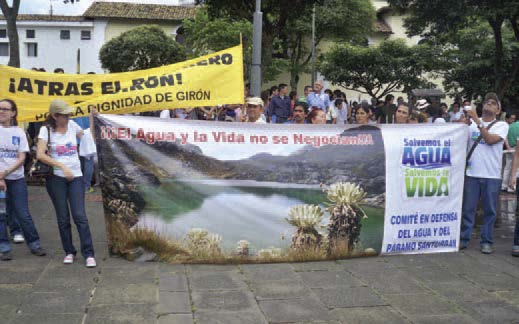ABColombia is a joint initiative of CAFOD, Christian Aid, OXFAM GB, SCIAF and Trocaire. This detailed study examines the impacts of mining and, the often vain attempts of government policies to regulate the sector. It concludes with detailed recommendations.
Mining in Colombia has been singled out to be one of
the major drivers of economic growth for the Colombian
economy, and yet this report reveals that in the case of coal,
the Colombia Government was actually giving it away in 2007
and 2009. The lack of an effective and transparent tax system
in Colombia has resulted in some multinational corporations
making more from tax exemptions than they pay in corporate
income taxes and royalties. With the proposed new Tax Bill,
rather than raising income tax for mining corporations, the
government plans to cut it from 33 per cent to 25 per cent.1
With the goal of doubling coal exports2 and tripling mining
generally by 2021, Colombia risks giving its natural resources
away at immense social, environmental and human rights
costs if it does not revise its tax regime. Furthermore, the
findings of this report reveal that government policies aimed
at rapidly expanding natural resource extraction through
Foreign Direct Investment (FDI) conflict with policies on
the protection of ecologically sensitive areas, the rights
of peasant farmers (campesinos), Indigenous and Afro-
Colombian Peoples, land restitution and the protection of
areas for agricultural use.
Download the full report here

